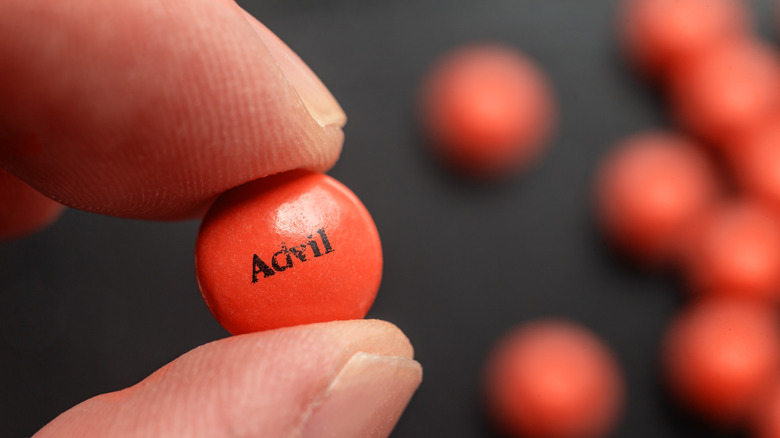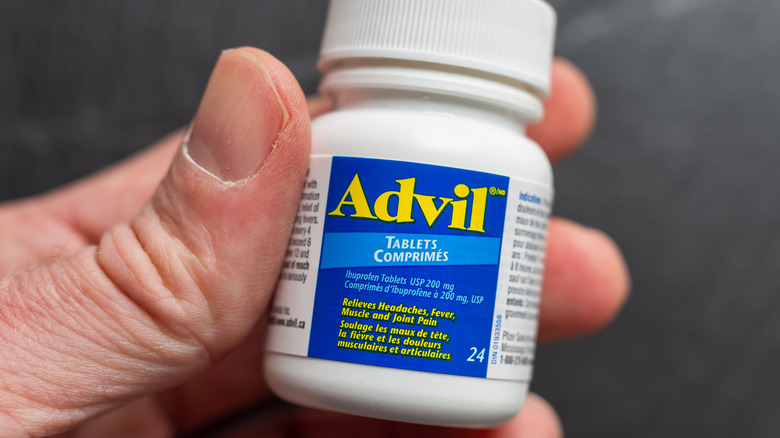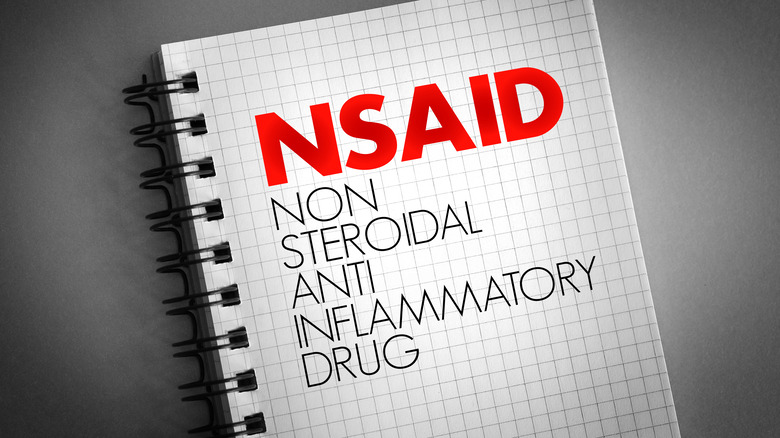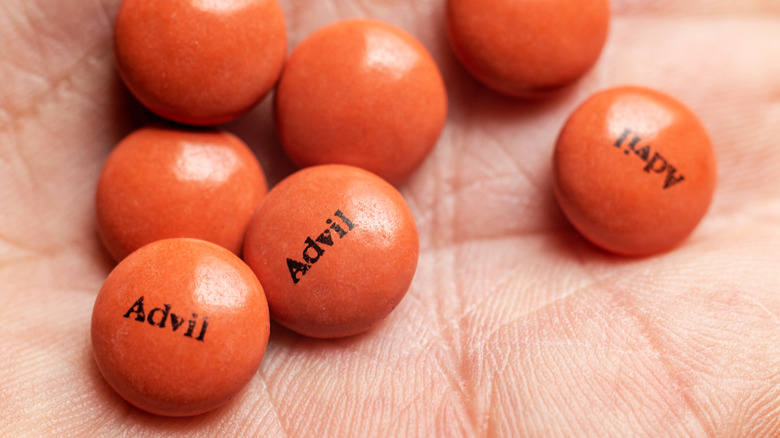Does Ibuprofen Thin Your Blood?
Advil and Motrin — two of the most common brand names for ibuprofen — are nonsteroidal anti-inflammatory drugs (NSAIDs) that are commonly used to reduce fever and relieve minor aches and pains. They're available everywhere for over-the-counter purchase, and are generally considered to be safe for most people. But ibuprofen does have effects on the blood that can make it dangerous for people with certain medical conditions.
Researchers who studied the effects of NSAIDs, including ibuprofen, on a blood-clotting disorder called venous thromboembolism (VTE) found that people who used NSAIDs had an 80% increased risk of dangerous clotting in the legs and lungs. Study lead author Patompong Ungprasert, of Bassett Medical Center in Cooperstown, New York, wrote, "Our results show a statistically significant increased VTE risk among NSAID users. Why NSAIDs may increase the risk of VTE is unclear. Physicians should be aware of this association and NSAIDs should be prescribed with caution, especially in patients already at a higher risk of VTE" (via WebMD).
Ibuprofen is not actually a blood thinner
In addition to an increased risk of blood clotting, ibuprofen can also increase a person's risk of stomach bleeding. After one study examining the effect of ibuprofen on the gastrointestinal (GI) tract, Richard H. Hunt, M.D., senior study author from the McMaster University Health Science Centre, concluded that "The potential for serious GI complications should always be considered when ibuprofen is recommended for at-home use. Serious bleeding can always occur even with over-the-counter drugs that are considered safe" (via Science Daily).
That doesn't mean that ibuprofen is actually a blood thinner though — it's not (via Advil.com). And medical experts warn against the dangers of mixing ibuprofen with blood thinner medications. The combination can actually disrupt normal blood clotting, leading to a higher risk of bleeding. Cardiologist and Harvard Medical School professor Dr. Deepak L. Bhatt recommends, "When painkillers are needed, it's best to use the lowest dose that reduces symptoms and to stop taking them if the symptoms subside" (via Harvard Health Publishing).
Ibuprofen is classified as an NSAID
The term "blood thinner" is a bit misleading, because the medications prescribed for this purpose don't actually "thin" the blood at all. Rather, they work to make it harder for blood clotting to take place, either by preventing platelets from clumping together or by acting as anticoagulants, slowing down the process of blood clot formation. Ibuprofen is classified as a nonsteroidal anti-inflammatory drug (NSAID) — not technically a blood thinner — but it still has some mild blood-thinning properties.
Because of this, ibuprofen is not a safe choice for pain relief for someone who is already on blood-thinning medications. Dr. Deepak L. Bhatt, a Harvard Medical School cardiologist and professor, explained that, because ibuprofen also has an anti-clotting effect on blood platelets, "That could raise the risk of bleeding, especially in the digestive tract. Taking them together with blood thinners raises the bleeding risk even more" (via Harvard Health).
Ibuprofen carries the risk of GI bleeding
Even on its own, ibuprofen carries a significant risk of gastrointestinal (GI) bleeding when taken in large doses regularly or for an extended amount of time. One study published in the American Gastroenterological Association (AGA) journal Clinical Gastroenterology and Hepatology reported that, in healthy patients, GI bleeding was found after only three days of ibuprofen use (via Science Daily). Other NSAID medications could potentially increase the risk of significant GI problems even more.
Richard H. Hunt, MD, the study's author from the McMaster University Health Science Centre, noted that there are possible complications related to the gastrointestinal tract when people regularly take ibuprofen at home. "Elderly people and those with debilitating conditions such as arthritis should be especially cautious about the medications they are taking together and the adverse effects of those interactions," he shared. "Serious bleeding can always occur even with over-the-counter drugs that are considered safe."
Aspirin is often prescribed as a blood-thinning medication
Another popular NSAID – aspirin – has been proven to decrease the clumping abilities of blood platelets, inhibiting blood clotting, and is regularly prescribed in low doses as a daily therapy to help prevent heart attacks and strokes. Aspirin has a significantly greater anti-clumping effect on blood platelets than ibuprofen (via Drugs.com).
Extended use of aspirin is not risk-free though. Aspirin is more likely than ibuprofen to produce uncomfortable gastrointestinal side effects, and children under 12, or those under 16 who are immunocompromised, should not take aspirin due to the risk of developing Reye's syndrome. Because of this, ibuprofen or acetaminophen (commonly sold under the brand name Tylenol), instead of aspirin, are preferred pain relievers for kids.
Also, when used long-term, aspirin comes with a long and concerning list of potentially harmful side effects, including damage to the lining of the gastrointestinal (GI) tract, and it may even increase the risk of heart failure in those who are predisposed for it (via Science Daily). The authors of a report on the effects of continuous aspirin use, which was published in Oncology Letters, noted, "The main harmful effects of aspirin on the digestive system are bleeding, ulcers, perforation, dyspepsia and discomfort, while hepatic dysfunction is rare. One study found that aspirin has low toxicity and leads to a lower incidence of bleeding in the upper GI tract, and that it mainly results in dyspepsia."
There are a number of natural blood-thinners like dark chocolate
There are also some natural substances which have blood-thinning properties, without carrying a significant risk of side effects. Dark chocolate lovers will be glad to know that a little of their favorite indulgence might actually help prevent a heart attack or stroke. Flavanol, a compound found in chocolate, is known to prevent the clumping together of platelets, reducing blood clotting. But while a couple of squares of chocolate after dinner could be healthy and delicious, doctors are reluctant to give a thumbs up to people going unhinged at the chocolate buffet. Epidemiologist Diane Becker warns, while chocolate does offer some benefits, "I would never tell people to go ahead and eat chocolate because chocolate travels with a lot of friends, like fat and sugar" (via SF Gate).
Alcohol, which also has mild blood-thinning properties, falls into a similar category, so don't try to replace your blood-thinning medication with a case of beer (via Verywell Mind).
Contrary to popular belief, caffeine has no blood-thinning effects, according to HealthTap. But blueberries do, due to the presence of a group of blood-thinning chemicals called salicylates, as noted by Nourish by WebMD. Certain spices, including turmeric, ginger, and cayenne peppers, also contain blood-thinning compounds (via Medical News Today).






